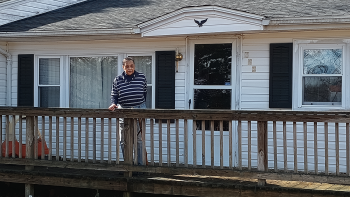
How housing affects health
Healthy housing helps families thrive
Around the world, families without decent housing are exposed to greater personal and environmental risks, are less nourished, and have less access to health care, according to the World Health Organization. As many as 1 in 4 people worldwide live in conditions that harm their health and safety.
Wherever it’s located, substandard and deteriorating housing can contribute to a variety of serious ailments. Respiratory diseases, lead poisoning, cancers from toxic materials, neurological disorders, stress, psychological and behavioral dysfunction. Just one example of how physical surroundings can affect health: It is estimated that as many as 40 percent of asthma cases can be attributed to factors in the home such as molds, pests like mice or cockroaches, or exposure to chemicals.
“Where you live may be your strongest predictor of your health. We are thinking more and more about housing as something that we need to be investing in and supporting to improve the health of our patients.”— Dr. Megan T. Sandel
A decent, affordable house can have a significant impact on a family’s health. Replacing a dirt floor with a concrete one reduces the spread of respiratory and parasitic diseases. Repairing a leaky roof eliminates mold. Creating access to basic sanitation facilities such as toilets or latrines helps improve hygiene and stops life-threatening disease. Affordability raises a family’s standard of living and relieves the psychological pressure of being forced to make tough trade-offs just to make it through the month.
The place you call home should never threaten your health. Decent and affordable housing help make that difference.





